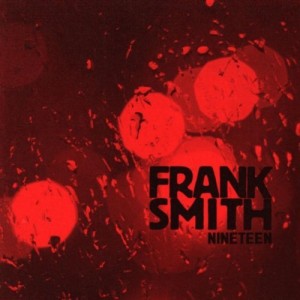Apex Manor – Year of Magical Drinking
So what do you do if you’re Ross Flournoy and your band has just finished their productions as a group? Keep writing songs and diving further into the musical world, of course. In 2009, when The Broken West ceased existing, Flournoy continued his work alongside former band mate Brian Whelan, and also his new roommate Adam Vine— thus creating Apex Manor, a new group for him to belong to. The result is a power pop bang of goodness that will have you jamming along with the distorted guitars.
“Southern Decline” kicks the pop party right from the start. Flournoy spins the story of getting “high, while [he] feels low,” with guitars strumming away, juxtaposing such a negative subject with strong instrumentations. “Under the Gun” then follows and you can see the crystal clear and masterly executed production of Dan Long (who produced such bands as Local Natives) shining. Just enough distortion on the guitar parts fills all the nooks and crannies of this song, so that there are no holes for the airy percussion elements to slip through.
Three songs into the album comes my personal favorite “The Party Line.” Just when you think that The Year of Magical Drinking is going to be just another pop album, Flournoy throws in this number and you’re hooked again. Gentle, undistorted plucking of guitar begins the song and then the beat gets going and some more rock feeling washes over, making your head bob and fingers tap. It’s pure bliss for three minutes and fifteen seconds, even during the short return to quiet that comes before the final chorus. It’s a song that’s meant to be blasted, and blast it you must.
Accompanying the previous track is another less pop, more rock song: “Teenage Blood.” The repetitive line of “I’ve got teenage blood/boiling in my brain” resounds, and for a second, you almost believe that perhaps there is a little bit of angst in Flournoy; the vocals stray from their refined execution, and the cymbals crash chaotically, but within a few minutes, the band is back to their style—a nice deviation and then return, so that they can finish strong. “Holy Roller” slows things down for basically the first time on the album and Apex Manor shows yet another side of their musical talent; a sort of bluesy , soft rock flair, without the cheesiness of course.
For their first full-length album, Apex Manor has done well. While not the most ground breaking sound, they combine pop with rock, and solid production to match their every beat. I enjoyed it quite a bit, and it is a very good example of what mostly pop albums should sound like. Here’s to hoping for excellent future albums from this fine group.
[audio:https://austintownhall.com/wp-content/uploads/2010/10/02-Under-the-Gun-1.mp3]Download: Apex Manor – Under the Gun [MP3]













